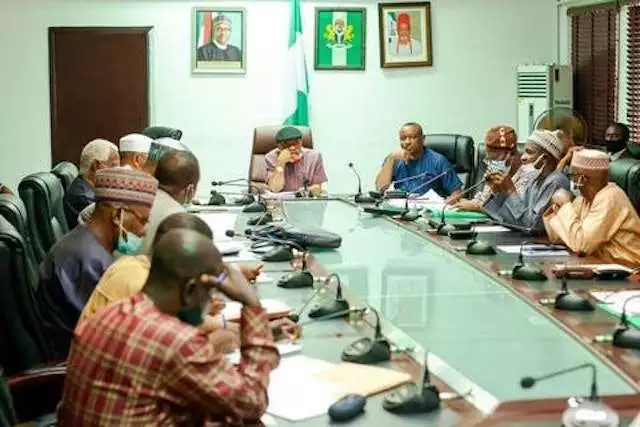Information is trickling down from the meeting held between the Academic Staff Union of Universities, ASUU, and the Federal government Monday evening over the almost two months strike action embarked by the former.
The meeting was said to have been attended only by the ASUU Renegotiation Committee.
The Federal Government’s position was for renegotiation of the disputed welfare package for university workers “in line with current realities” and ASUU insisted that the renegotiated package must be implemented. The committee, according to Ngige, the Labor Minister, has a six week mandate as stipulated by the Memorandum of Action, MoA, of the Unions.
Indications were that the Minister of Labour and Employment, Dr Chris Ngige, held unto this position during the meeting with FG and ASUU renegotiation committee Monday.
According to Ngige, Government frowns at the approach by ASUU in pursuing its demands.
This Magazine reported that the Federal Government invited ASUU to a meeting Monday over the lingering strike action by the former over welfare. But the meeting was attended by the 2009 Renegotiation Committee.
During the meeting, Ngige advised the leadership of ASUU to find a better way of putting pressures on the Federal Ministry of Education and the National Universities Commission, NUC, to pursue implementation of agreements reached with the government instead of “rushing to strike” every time there was a disagreement.
“I am not Minister of Education. I cannot go to the Education Minister and dictate to him how to run his place. But I told ASUU that you should be bombarding them at the Federal Ministry of Education for this to be moved forward.
“There are many ways to do so. If you go to the labour act, there is something called picketing. You can picket. The strike is an ultimate thing. Picketing means that you can stay in the corridor, clapping or singing. Workers are permitted to do so.
“But I am tired of every time there is a disagreement, it is a strike. And the bosses in the Federal Ministry of Education don’t feel the strike. It is the children and some of us parents that have our children in public schools” he said.
“Why won’t I support if ASUU and their Unions now want a renegotiation of their conditions of service, which is the main thing in the proposal by the previous Committee.”
Chairman of the 2009 FG and university-based union renegotiation Committee, Prof. Nimi Briggs said his Committee is consulting all the stakeholders with a view to finding an amicable solution to the ASUU dispute.
Meanwhile, the ASUU zonal coordinator, Dr Salawu Lawal, says there will be no end to the strike untill their demands sre met.
According to him, public Universities will not resume until the renegotiated 2009 agreement is signed and implemented.
Also the University Transparency and Accountability Solution must be deployed before they csn call off the strike.
Lawal said this during a press conference at the University of Abuja in Gwagwalada.
“You would recall that the Academic Staff Union of Universities declared a four-week rolling strike at the University of Lagos National Executive Council meeting held on Feb. 14″, he said.
“Owing to the failure of the Federal Government to act within that period, the national action was rolled over for another eight weeks following the resolution taken at an emergency NEC meeting at the Festus Iyayi National Secretariat on March 14.
“The action as you are probably aware is to among other things, compel the Federal Government to sign and implement the draft renegotiated 2009 ASUU-FGN Agreement submitted to it by the Prof. Munzali Committee since May 2021.
“As usual, the Federal Government has ignored ASUU’s call for full implementation of that famous agreement and other memoranda signed with the union.
“No meeting has been held between the two parties since the commencement of the ongoing strike. The only exception is our union’s re-submission of UTAS for a retest.
“The summary is that unless and until the renegotiated 2009 agreement is signed and implemented and UTAS deployed, there will be no work in public universities,” Lawal said.
Discover more from The Source
Subscribe to get the latest posts sent to your email.








